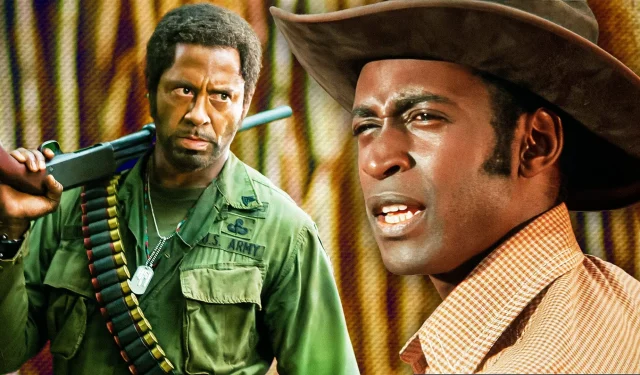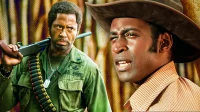Throughout cinematic history, numerous acclaimed films have been produced that would struggle to find a place in today’s cultural landscape. Films not only reflect the societal norms of their time but also embody values that, when juxtaposed against contemporary standards, can seem outdated or offensive. As such, it is essential for audiences to approach these older works with a nuanced perspective, recognizing that their historical context contributes significantly to their artistic merit, even if they do not align perfectly with today’s progressive sensibilities.
Many renowned films grapple with themes of gender, race, and politics that may seem problematic by modern standards. This evolution in societal attitudes showcases progress towards inclusivity and a deeper understanding of minority representation. Thus, while the ability to create similar narratives has changed today, revisiting these films can still provide valuable insights when analyzed thoughtfully and critically.
10 Tropic Thunder (2008)
Robert Downey Jr.’s Use of Blackface Sparks Controversy
Ben Stiller’s satirical blockbuster, *Tropic Thunder*, remains a defining comedy of the 2000s. However, the film features Robert Downey Jr. as Kirk Lazarus, who undergoes a “pigmentation alteration”surgery that involves blackface—a facet that raises eyebrows in today’s cultural climate. Lazarus, a five-time Academy Award winner within the film, exemplifies an extreme commitment to role immersion, satirizing actors who take method acting to the extreme.
Stiller himself acknowledged that, in today’s more sensitive environment, recreating *Tropic Thunder* could prove troublesome. He noted that the current climate makes it “harder to do”edgier comedy, hinting at the delicate balance between satire and offense in contemporary discourse. While similar humor has made appearances in shows like *It’s Always Sunny in Philadelphia*, where a blackface scenario was portrayed, it remains contentious.
Watch Tropic Thunder
9 Blazing Saddles (1974)
*Blazing Saddles* is often cited as a quintessential example of films that could not be produced today. Despite its groundbreaking mockery of racism within both the Western genre and the broader Hollywood landscape, the film’s prevalent use of racial slurs can make it feel exceedingly uncomfortable for today’s audiences. Even though its provocative language served a purpose, any attempt to remake this classic in the modern era would necessitate more refined approaches to conveying its messages.
The film’s exaggerated stereotypes, particularly around Black characters and other marginalized groups, would require a more sophisticated narrative structure to resonate with today’s viewers. As a satire emblematic of its time, *Blazing Saddles* illustrates how societal standards have evolved, and a contemporary reinterpretation would need to tread carefully to effectively reflect modern discussions about race.
Watch Blazing Saddles
8 Léon: The Professional (1994)
Natalie Portman’s Role Raises Ethical Concerns
Portman has spoken candidly about the complexities surrounding her feelings towards *Léon*, noting a mix of appreciation for launching her career and discomfort with certain aspects of the film. Given the context of her young age during filming, the interplay between her character and the adult male lead has become increasingly scrutinized, further complicating its potential for contemporary audiences.
Watch Léon: The Professional
7 The Searchers (1956)
Outdated Stereotypes Create Controversy
John Ford’s *The Searchers* is undoubtedly a hallmark of Western cinema. However, its depiction of Native Americans raises significant concerns when viewed through the lens of modern ethics. Although it sought to address the violence faced by Indigenous peoples, the film’s exaggerated and racist portrayals stem from a time of rampant racial prejudice, leading to its critique as simplistic and offensive.
Notably, the film reflects a broader trend seen in many Westerns of its era, which often failed to depict historical realities accurately. Ford himself later acknowledged shortcomings in the representation of Indigenous peoples in his films, leading to richer narratives in later revisions. Today, audiences seek more nuanced storytelling, particularly regarding the portrayal of marginalized communities.
Watch The Searchers
6 American Beauty (1999)
Contention Surrounds the Film’s Central Themes
The dynamic between Lester Burnham and Angela raises critical reflections about consent and boundaries, rendering certain elements of the film profoundly unsettling in today’s context. Despite its significance as a cultural marker at the turn of the millennium, the film’s reputation has suffered significantly due to real-world controversy, complicating any return to viewing it with nostalgia.
Watch American Beauty
5 The Crying Game (1992)
Trans Representation Lacks Nuance
Neil Jordan’s *The Crying Game* stands out for its exploration of complex themes surrounding gender and nationality, particularly in its surprising twist involving a transgender character. Although the film sought to challenge stereotypes, it ultimately fell into the trap of reinforcing harmful portrayals, especially given the casting of a cisgender male in the role of a transgender woman.
This portrayal may feel exploitative by today’s standards, where authentic representation is paramount. A modern reworking of *The Crying Game* would require a fundamentally different approach to ensure it aligns with contemporary discussions about gender identity and representation, reflecting the nuanced realities of marginalized communities.
Watch The Crying Game
4 Manhattan (1979)
The Age Gap Raises Ethical Questions
Woody Allen’s *Manhattan* features a romantic storyline that involves Isaac Davis dating a 17-year-old girl, sparking significant moral outrage today. While the film captures the intricacies of urban romance with wit and charm, the ethics surrounding age difference in relationships cast a shadow over its reception—especially in light of renewed accusations against Allen regarding inappropriate conduct.
The scrutiny that the film faced in the wake of these allegations signals a shift in societal understanding of power dynamics in relationships, rendering its once-celebrated premise far more controversial in contemporary discourse. Today, age disparities in romantic relationships are increasingly scrutinized, highlighting the need for greater responsibility in storytelling.
Watch Manhattan
3 White Chicks (2004)
Cultural Sensitivity Ignored
While the film aimed for humor with its premise, it lacked the depth necessary to address these complex themes, ultimately reducing them to comedic devices devoid of any serious discussion. In an era where discussions around racial identity and gender fluidity are gaining traction, a film like *White Chicks* would likely be met with heightened criticism and calls for accountability.
Watch White Chicks
2 Mrs. Doubtfire (1994)
A Troubling Narrative Hidden Beneath Comedy
Though beloved by many, *Mrs. Doubtfire* presents a storyline that, upon closer examination, is deeply unsettling. It involves a divorced father who disguises himself as an elderly housekeeper to elude his ex-wife while spending time with his children. Despite Robin Williams’s endearing performance, the film raises significant concerns around gender identity, manipulation, and deceit—even leading a viewer to question the ethics of using such a disguise for personal gain.
The implications of this narrative touch on complex themes around gender and parental responsibilities, revealing how the film’s comedic elements could obscure deeper ethical dilemmas. Given today’s conversations surrounding identity and consent, a fresh take on *Mrs. Doubtfire* would need to be approached with careful consideration to align with modern values.
Watch Mrs. Doubtfire
1 Gone With The Wind (1939)
An Unforgiving Lens on History
Despite its status as a cultural icon, *Gone with the Wind* glorifies slavery and perpetuates the myth of the Confederacy, making it a challenging piece to revisit today. With its technical brilliance and sweeping storyline, the film still offers valuable cultural insights but lacks the sensitivity needed to navigate its historical context, ultimately presenting a convoluted portrayal of race relations and historical events.
The juxtaposition of its vast accomplishments—such as Hattie McDaniel receiving the Academy Award for Best Supporting Actress—against its deeply problematic themes, highlights the complex legacy of this film. Although it may remain a ‘classic’ in many respects, *Gone with the Wind* cannot escape its past, presenting a stark contrast between the accolades it received and the problematic historical narratives it reinforces.
Watch Gone With The Wind
Source:
Collider,
Vanity Fair,
Studlar & Bernstein,
Vanity Fair


